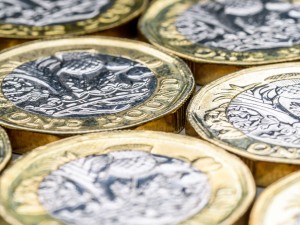
The story so far
So, to the traditional spring equinox pop quiz: Which is the worst-performing major currency in the year to date?
Sterling!, comes the instinctive reply. But no, although the pound has indeed had a rough time of it over the last two and a half months it is the US dollar that has tightened its grip on the wooden spoon, losing two thirds of a cent (-0.5%) to sterling and two and a quarter (-2.2%) to the euro.
The runaway winner, since you don’t ask, is the South African rand. It is up by an impressive 6.5% against the pound this year, a large chunk of which came in the last seven days. From its nadir at the beginning of last year the rand has strengthened by more than a third against the US dollar and by more than a half against sterling.
The B-word
Two months ago Britain’s prime minister told the world that the Article 50 Brexit trigger would be pulled “by the end of March”. On Monday Theresa May confirmed that prediction, naming the day as 29 March, whereupon the pound dropped half a cent. As much as they are steeled to the onset of Brexit, investors still find it difficult to resist the temptation to press the sell button whenever the B-word crops up. It would be fair to expect more of the same on 29 March.
Dull dollar
When the US Federal Reserve announced last Wednesday that it was raising the target range for Federal Funds from 0.5-0.75% to 0.75-1% the dollar went down. Investors had been expecting the increase, they got the increase, and yet they were disappointed because the accompanying commentary was not as bullish as they had hoped.
A couple of days later there was further disappointment when the White House revealed its outline for the federal budget. Instead of the bold investment programmes and tax cuts it consisted mainly of spending cuts, not at all the sort of stuff upon which investors had been pinning their hopes.
They see the administration mired in skirmishes about travel bans, wiretapping and links with Russia, unable to push ahead with its legislative programme. And they find it hard to be impressed. They marked the dollar down by a cent and a half in the last week alone.
A voice of dissent
At the Monetary Policy Committee meeting last week one member, Kristen Forbes, went against her colleagues to vote for a quarter-percentage-point increase in the Bank Rate. Although one against eight hardly constitutes a grass-roots rebellion, and while Ms Forbes will be leaving the committee in a couple of months’ time, investors saw the MPC in a new light. Rather than being unremittingly pessimistic, perhaps the time has now come when it can imagine the possibility of higher rates.
The new image helped mitigate the downward pressure on the pound. It still lost an average of -0.2% to the other dozen most actively-traded currencies but that loss was entirely a function of the rand’s upward push: without it sterling would have been flat on the week.
The good news
The euro got two “lucky” breaks from political developments. The first was when Geert Wilders’ Freedom Party put in a mediocre showing in the Dutch general election. The second was when Emanuel Macron is thought to have bested the National Front’s anti-euro Marine Le Pen in a French presidential candidates’ debate.
The bad news
If, as expected, Mr Macron and Ms Le Pen go through to the run-off in early May, Mr Macron will be the bookies’ favourite. Just like “Remain” and “Hilary Clinton”.
Sarah, Senior Account Manager at Moneycorp
Moneycorp is one of the largest international payment companies supporting over 90 currencies. Last year Moneycorp traded over £22.6 billion worth of international money transfers. Find out how Moneycorp can help you with your international transfer here.






